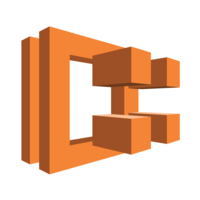Need advice about which tool to choose?Ask the StackShare community!
Amazon EC2 Container Service vs Apache CloudStack: What are the differences?
Amazon EC2 Container Service: Container management service that supports Docker containers. Amazon EC2 Container Service lets you launch and stop container-enabled applications with simple API calls, allows you to query the state of your cluster from a centralized service, and gives you access to many familiar Amazon EC2 features like security groups, EBS volumes and IAM roles; Apache CloudStack: Open Source Cloud Computing. Apache CloudStack is open source software designed to deploy and manage large networks of virtual machines, as a highly available, highly scalable Infrastructure as a Service (IaaS) cloud computing platform.
Amazon EC2 Container Service can be classified as a tool in the "Containers as a Service" category, while Apache CloudStack is grouped under "Open Source Cloud".
Some of the features offered by Amazon EC2 Container Service are:
- Docker Compatibility
- Managed Clusters
- Programmatic Control
On the other hand, Apache CloudStack provides the following key features:
- Works with hosts running XenServer/XCP, KVM, Hyper-V, and/or VMware ESXi with vSphere
- Provides a friendly Web-based UI for managing the cloud
- Provides a native API
"Backed by amazon" is the primary reason why developers consider Amazon EC2 Container Service over the competitors, whereas "Apache CloudStack works" was stated as the key factor in picking Apache CloudStack.
Apache CloudStack is an open source tool with 754 GitHub stars and 714 GitHub forks. Here's a link to Apache CloudStack's open source repository on GitHub.
If you want to integrate your cluster and control end to end your pipeline with AWS tools like ECR and Code Pipeline your best option is ECS using a EC2 instance. There are pros and cons but it's easier to integrate using cloud formation templates and visual UI for approvals, etc. ECS is free, you need to pay only for the EC2 instance but unfortunately, it is not standard then you cannot use standard tools to see and manage your Kubernetes. EKS in the other hand uses standard Kubernates definitions but you need to pay for the service and also for the EC2 instance(s) you have in your cluster.
Pros of Amazon EC2 Container Service
- Backed by amazon100
- Familiar to ec272
- Cluster based53
- Simple API42
- Iam roles26
- Scheduler7
- Cluster management7
- Programmatic Control7
- Container-enabled applications4
- Socker support4
- No additional cost2
- Easy to use and cheap1
Pros of Apache CloudStack
- Apache CloudStack works14
- Multi hypervisor13
- Easy setup10
- Real open source software9
- Open architecture9
- Community support8
- Hybrid Cloud integration8
- Secure7
- Simple7
- Scalable5
- Easy to use API2
- Terraform Support1
- Kubernetes Support1






























